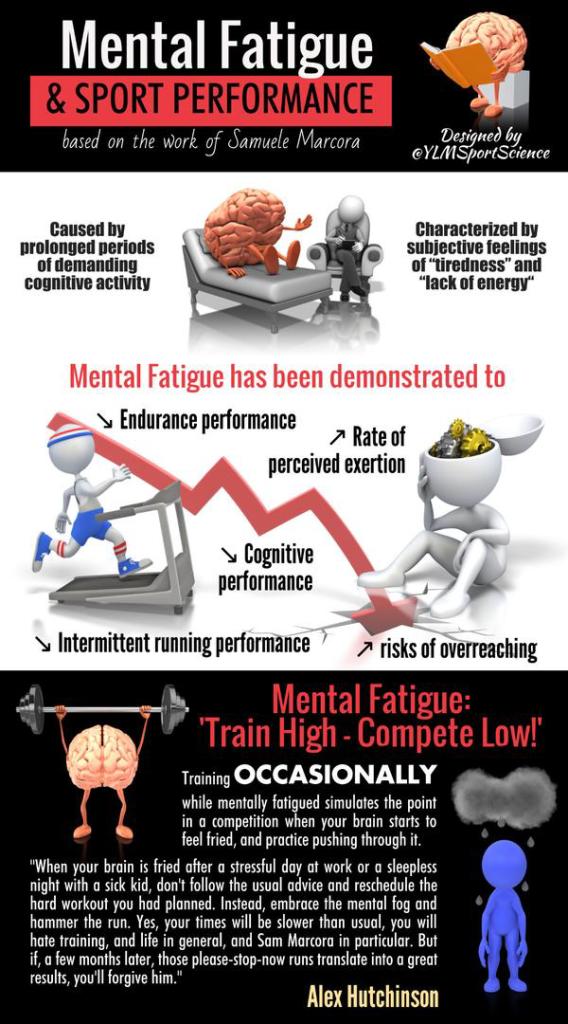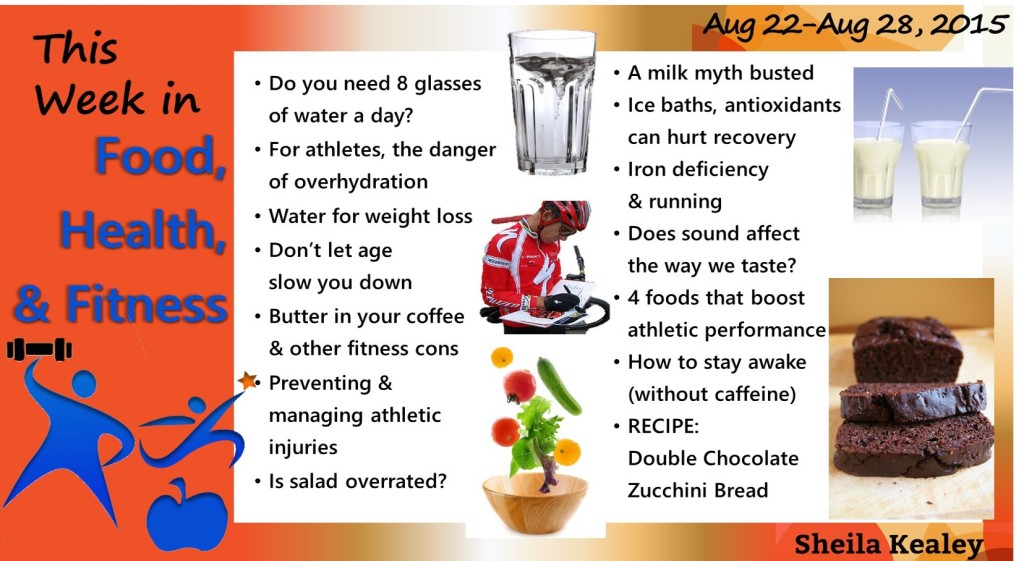This week, read about how the mind influences physical performance, how eating on the move may lead to overindulging, 5 foods to eat in September, a magic marketing word that makes foods seem healthier, how too little sleep quadruples your risk for colds, risks of heavy backpacks for kids, microwave myths, iron status and training at altitude, how young female athletes need a lot more food, and more.
The Mind’s Influence on Physical Performance
This week, the Toronto Star published an article on Canadian women rowers as they prepare for the 2015 World Rowing Championships in France. The article focused on how these athletes deal with the pain of intense exercise, and how these women believe that how their minds interpret pain can influence their physical performance. It was obvious that these women not only train their bodies to perform at their best, but are aware of a growing area of research looking at the underpinnings of fatigue in endurance performance suggesting that the brain quits before the body reaches its true physical limits.
Much of the recent research is this area has been led by Samuele Marcora, professor of exercise physiology at the University of Kent. His studies show that athletes who use strategies that reduce the perception of effort (i.e., motivational self talk, imagery, music) perform better than athletes who don’t use such strategies. He also studies training techniques that athletes can use to improve their mind’s ability to tolerate intense efforts, and investigates how mental fatigue can adversely affect performance.
In this sports infographic, Yann LeMeur explains one of Marcora’s studies, showing that mental fatigue can impair running performance. This highlights that it’s important to find ways to reduce mental fatigue before competitions or high quality training sessions. Future areas of research may include using mental fatigue as training stimulus. (Med Sci Sports Exerc. 2014 Dec 9)
More reading on the mind’s influence on fatigue . . .
- Psychological Determinants of Whole-Body Endurance Performance. Psychological skills training could benefit an endurance athletes (Sports Medicine, March 2015).
- What is fatigue? (Alex Hutchinson, the New Yorker)
- The stranger than fiction way to cheat fatigue (Brad Stulberg, Outside Magazine).
- Does motivational self-talk improve performance? (Strength and Conditioning Research)
- Mental Fatigue Impairs Intermittent Running Performance. Don’t calculate splits during intervals or a race! (Med Sci Sports Exerc. 2014 Dec 9).
- Positive feedback lowers VO2 & perceived exertion & improves economy
- Why are elite athletes able to speed up when they see the finish line?
- Workouts feel harder when your brain is tired (Gretchen Reynolds, New York Times)
More Links of Interest this Week
Are Women Better Tasters Than Men? Women of reproductive-age have a higher level of sensitivity to smell and taste than men. (NPR Health)
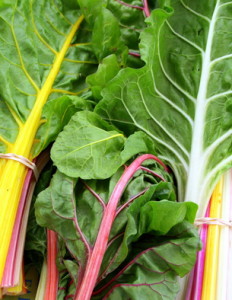 5 Foods That Taste Better in September Than They Will All Year. September brings so many great foods! Time Health highlights these 5: Swiss chard, rutabaga, lettuce, turnip leaves, and leeks. (Time Magazine)
5 Foods That Taste Better in September Than They Will All Year. September brings so many great foods! Time Health highlights these 5: Swiss chard, rutabaga, lettuce, turnip leaves, and leeks. (Time Magazine)
Eating on the Move May Lead to Later Overindulging. Researchers compared eating while watching TV, walking, or talking, and found that those who ate while walking were more likely to overindulge when presented with food later. Researchers speculate that this type of eating is distracted and may offer a justification to overeat. (New York Times, reporting on Journal of Health Psychology, Aug 2015).
This is How One Word Magically Makes Food Healthier. Packaged foods are rife with marketing tricks, and many consumers fall for them. Fooducate reports on a study showing that consumers looking at cereal ingredients perceive the cereal with “fruit sugar” as healthier than the cereal with “sugar,” although the nutrient profiles of both cereals are the same. (Fooducate, reporting on Appetite, July, 2015)
Too Little Sleep May Quadruple Your Risk for Colds. Sleep is important for a strong immune system, and a study published this week adds to the evidence. Researchers exposed individuals to a cold virus, and found that those who slept less than 6 hours/night were 4 times more likely to catch a cold than those who slept more than 7 hours/night. (Medscape, reporting on Sleep, Sept 2015).
Microwave Myths. Do microwaves destroys nutrients or “denature” food in a harmful way? No. Monica Reinagel looks at the evidence behind this popular myth. (NutritionOvereasy.com)
 Is your kid’s gigantic backpack a health risk? Backpacks are getting bigger and heavier. Several recent studies (UCSD, UCSF ) suggest that the heavy loads contribute to back pain in children. Experts recommend that a child’s backpack should be no more than 10-20% of the child’s body weight. (Time)
Is your kid’s gigantic backpack a health risk? Backpacks are getting bigger and heavier. Several recent studies (UCSD, UCSF ) suggest that the heavy loads contribute to back pain in children. Experts recommend that a child’s backpack should be no more than 10-20% of the child’s body weight. (Time)
Training at altitude requires adequate iron stores. If you are an athlete with low iron stores, this new study suggests that it’s important for you try to improve your iron status before training at high altitude, and consider iron supplementation when at altitude. The study found that daily iron supplementation while training at altitude can help attenuate a reduction in iron stores. Overall, athletes with low iron stores should take a look at their diet, and consider an iron supplement under the supervision of a physician, especially if training or racing at altitude. (PlosOne, August 2015).
Why one naturopath quit after watching her peers treat cancer patients. Julia Beluz interviews Britt Hermes’s, a former naturopath, who became concerned with the lack of evidence-based practices in her profession (and potential dangers to public health), which she chronicles on her blog Confessions of a Naturopathic Doctor (Julia Beluz, Vox.com).
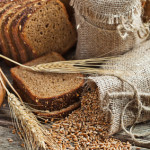 Less processed fiber makes food healthier. Even though grains processed in different ways might have the same nutritional content, an increasing amount of research shows that less processed grains have a nutritional advantage. For example, rolled oats and oat flour are both 100% whole grain and contain the same nutrients, but rolled oats are a bigger particle and take longer to digest, so they are better for blood sugar and insulin control (i.e., whole oats are better than Cheerios [powdered oats], even though both are whole grain). A study published this week adds to the evidence that a grain’s particle size can influence health. Researchers investigated the impact of porridge made from coarse wheat particles vs fine wheat particles, and found that coarse wheat particles resulted in much more favorable blood markers (lower blood glucose, lower insulin, and lower c-peptide). (American Journal of Clinical Nutrition)
Less processed fiber makes food healthier. Even though grains processed in different ways might have the same nutritional content, an increasing amount of research shows that less processed grains have a nutritional advantage. For example, rolled oats and oat flour are both 100% whole grain and contain the same nutrients, but rolled oats are a bigger particle and take longer to digest, so they are better for blood sugar and insulin control (i.e., whole oats are better than Cheerios [powdered oats], even though both are whole grain). A study published this week adds to the evidence that a grain’s particle size can influence health. Researchers investigated the impact of porridge made from coarse wheat particles vs fine wheat particles, and found that coarse wheat particles resulted in much more favorable blood markers (lower blood glucose, lower insulin, and lower c-peptide). (American Journal of Clinical Nutrition)
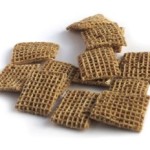 Even though 100% whole grains are healthier than their refined counterparts, the least processed option is probably healthier. Keep in mind that most breakfast cereals (even when 100% whole grain) are highly processed into a fine powder to make those square, flake, and circle shapes. This can be good for athletes to snack on during long exercise sessions when they need quickly available sugars that their body can use as fuel, but is probably not the best option at the breakfast table.
Even though 100% whole grains are healthier than their refined counterparts, the least processed option is probably healthier. Keep in mind that most breakfast cereals (even when 100% whole grain) are highly processed into a fine powder to make those square, flake, and circle shapes. This can be good for athletes to snack on during long exercise sessions when they need quickly available sugars that their body can use as fuel, but is probably not the best option at the breakfast table.
To Thrive, Many Young Female Athletes Need A Lot More Food. Many girls aren’t eating enough to meet the physical demands of their sport, predisposing them to many health problems. (NPR Health)
